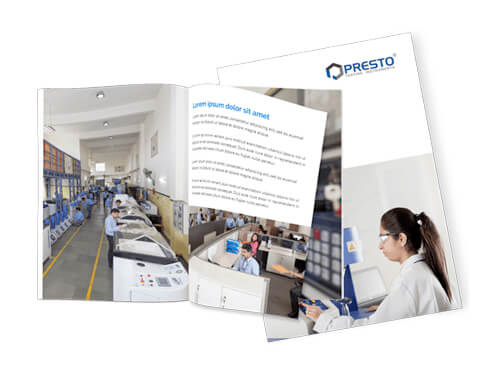Use of Tensile Test in Different industries: Surgical Gloves

The strength & stretch factors of surgical gloves are important for its quality and performance. Tensile testing of surgical gloves is performed as per the international standards of ASTM D412 for its acceptance worldwide. The standardization ensures that the surgical glove will not tear or fail, and has sufficient stretch. Let us discuss the use of tensile test in different industries, specifically for surgical gloves.
.jpg)
Get the right tensile testing machine for standardized testing, contact our experts.
Ideal tensile testing - ASTM D412
ASTM D412 is one of the global standards which operate under ASTM International. Under this standard, surgical glove material is tested for its tensile stress (or tension,) tensile strength, yield point and optimum elongation.
The ‘test method A’ for tensile testing of medical gloves are as follows:
1. Cut a die from the glove material in a ‘dumbbell’ shape.
2. Set the sample within the grips tightly and ensure no slippage should be there.
3. Stretch it from either end by an ASTM D412 standardized tensile testing machine at a constant speed until it breaks.
4. There must be a computer on the machine which can collect the data live while the test is on.
5. Once the sample breaks, its elongation will be calculated and recorded.
The tensile test can be repeated for those samples which have been undergone the ‘accelerated aging process’ in heating chambers as per ASTM D573.
This test examines glove’s physical properties for its entire shelf life which is usually a ‘rare case’ scenario. If the gloves are properly stored in a cool & dry place, kept away from sunlight, heat, and humidity, it will show a better strength and elongation than the ‘post-aging’ tested samples.
Tensile strength requirement:
- The minimum required tensile strength for latex gloves = 18 MPa (prior to its aging)
- The minimum required tensile strength for latex gloves = 14 MPa (post-aging)
- The minimum tensile strength for nitrile gloves = 14 MPa (before and after aging)
Elongation requirement:
- The minimum required elongation for latex gloves = 650% (before aging)
- The minimum required elongation for latex gloves = 500% (after aging)
- The minimum required elongation for Nitrile gloves = 500% (before aging)
- The minimum required elongation for Nitrile gloves = 400% (after aging)
What importance do the figures have while selecting and wearing gloves?
It’s not always the case that high tensile strength is required for medical gloves. The highest number doesn’t necessarily mean ‘best performance’. Glove manufacturers must keep a balance between strength, stretch, and comfort. Too high tensile strength can sometimes make the glove rigid or difficult to wear.
Elongation is an important factor to judge the performance of glove. High elongation makes the glove stretch rather than tearing. A glove with good elongation number will stretch and fit according to the hand, improving the comfort and quality.
Use of tensile test is always required in different industries including medical firms. Hence it is important to get the technique and instrument right.
Get details for computer-based tensile testing machine complying with ASTM D412 standards.
you may also like
- The Ultimate Guide to Lab Testing Equipment: Ensuring Quality with Precision Instruments
- GSM Calculator Guide: How to Measure Fabric, Paper & Plastic Weight
- What Is a Gloss Meter? Working Principle, Uses & Benefits Explained
- Applications of Tensile Testers in Plastic, Metal & Rubber Industries
- How UV Chambers Help Manufacturers Beat Sunlight and Weather Challenges
Recent News
- Paper & Packaging Testing Instruments
- Paint, Plating & Coating Testing Instruments
- Plastic & Polymer Testing Instruments
- Environmental Testing Chambers
- PET & Preform Testing Instruments
- Color Measuring Testing Instruments
- View Entire Range Instruments

Catalogue 2023
Get information about new product launches, research, innovation and endeavors at Presto.
download Free Copy
Get a Quote

.jpg)
